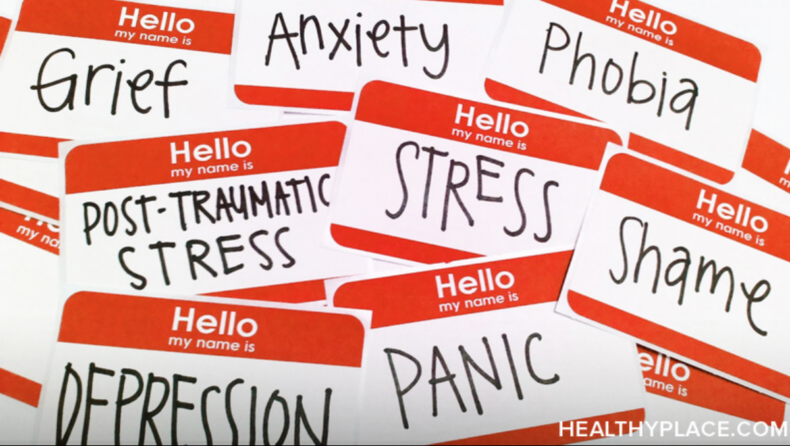Mental Disorders can be chronic or episodic
Mental Disorders, which can affect an individual’s thoughts, mood, or behaviour, are sometimes referred to as mental illnesses. It can become chronic at times. Some disorders are easy to cure, while others require proper assistance from professionals, and without their help, human beings would never understand what they are going through.

Even though there is no definitive relationship between heritability and the tendency to develop a mental health disorder, lifestyle, dietary factors and exercise can impact the cause of depression, anxiety, and other requirements. Having a mental disorder is not a bad or a big thing. It is a normal thing. Many people would be suffering from these disorders, and they don’t even know.
Sometimes there could be a different reason to see a psychologist because there are many types of psychology and psychologists in the world. We consult psychologists when we have minor mental disturbances or have trouble making decisions.
Going to psychologists is frowned upon in many countries, including India. People will begin to see you from a different point of view. According to them, only those who are mentally ill or have a major mental problem should see a psychologist. They never try to understand, however, that disorders are not the only reason to visit a psychologist. People occasionally require direction, advice, and a path to follow.
As I previously stated, mental disorders can be caused by a variety of factors. Changing in mood, behaviour, or a person’s way of life. Not only adults but also children suffer from mental disorders. A child may suffer from a mental disorder for a variety of reasons. Many factors can contribute to this, including poor exam results, strained parent-child relationships, and a tendency to criticize children.
There are many types of mental disorders, but the most common disorders are below, which will help you to understand them better.
Anxiety Disorder:

Individuals with mental disorders encounter disconcerting and common despair and suspicion. While many people experience these feelings, for example, during a Job interview and speaking in a public event (as a normal stress response), those with anxiety disorders experience them frequently and in nonintrusive situations. Anxiety attacks could last up to six months or more at a time. Anxiety is a broad term that encompasses a variety of specific disorders, along with
- Generalised Anxiety disorder (GAD)
- Obsessive-Compulsive Disorder (OCD)
- Panic disorder
- Post-traumatic stress disorder (PTSD)
- Social Anxiety disorder
Mood Disorder:

it is an estimation that one in every ten adults suffers from a mood disorder. Mood swings are normal in an individual, but people with mood disorders have more enduring and drastic clinical signs that can destabilize their daily lives. People may experience an ongoing sad, anxious, or empty mood; feelings of despair; low levels of self; extreme sadness; decreased appetite, and other symptoms depending on the disorder. Mood disorders are treatable with therapy, anti-anxiety medications, and self-care. The following are the common mood disorders:
- Major Depression
- Dysthymia
- Bipolar Disorder
- Substance-induced mood disorder
Psychotic Disorder:
People afflicted with psychotic disorders would be unable to differentiate what is and is not real. This group of mental disorders alters a person’s perception of reality. Specific viruses, troubles with specific brain interconnects, extreme stress or trauma as well as some form of substance abuse, according to scientists, could all play a role in the development of psychotic disorders. The following are the most common psychotic disorders:
- Schizophrenia
- Schizoaffective Disorder
- Brief Psychotic disorder
- Delusional Disorder
- Substance-induced psychotic disorder
Dementia:
Although commonly misunderstood as a single disorder, dementia is a catch-all term for a variety of specific psychological conditions. Dementia-related disorders can cause a decline in cognitive abilities, which is often severe enough to interfere with everyday life and individual features. While this category encompasses a wide range of situations, Alzheimer’s disease accounts for 60 to 80 percent of all dementia cases. It gradually deteriorates memory and cognitive abilities, eventually robbing the ability to perform the most basic tasks. Other forms of dementia come in the form of
- Parkinson’s Disease
- Frontotemporal dementia
- Huntington’s disease
- Wernicke-Korsakoff Syndrome
Eating Disorder:
Eating disorders are something of a person’s relationship with food. They are complex mental disorders that frequently necessitate the intervention of medical and psychiatric consultants. These conditions lead to the development of unhealthy eating habits, such as an approach to food, body weight, or body shape. If left untreated, eating disorders can have negative health consequences and even result in death in extreme situations. Common symptoms include severe food limitation, food boozing, or purging behaviours such as vomiting or excessive exercise. The following are the most common types of eating disorders:
- Anorexia Nervosa
- Bulimia Nervosa
- Binge eating disorder
- Pica eating disorder
- Rumination disorder
To save those individuals from these disorders, we should provide them comfort and support, we should understand them.













